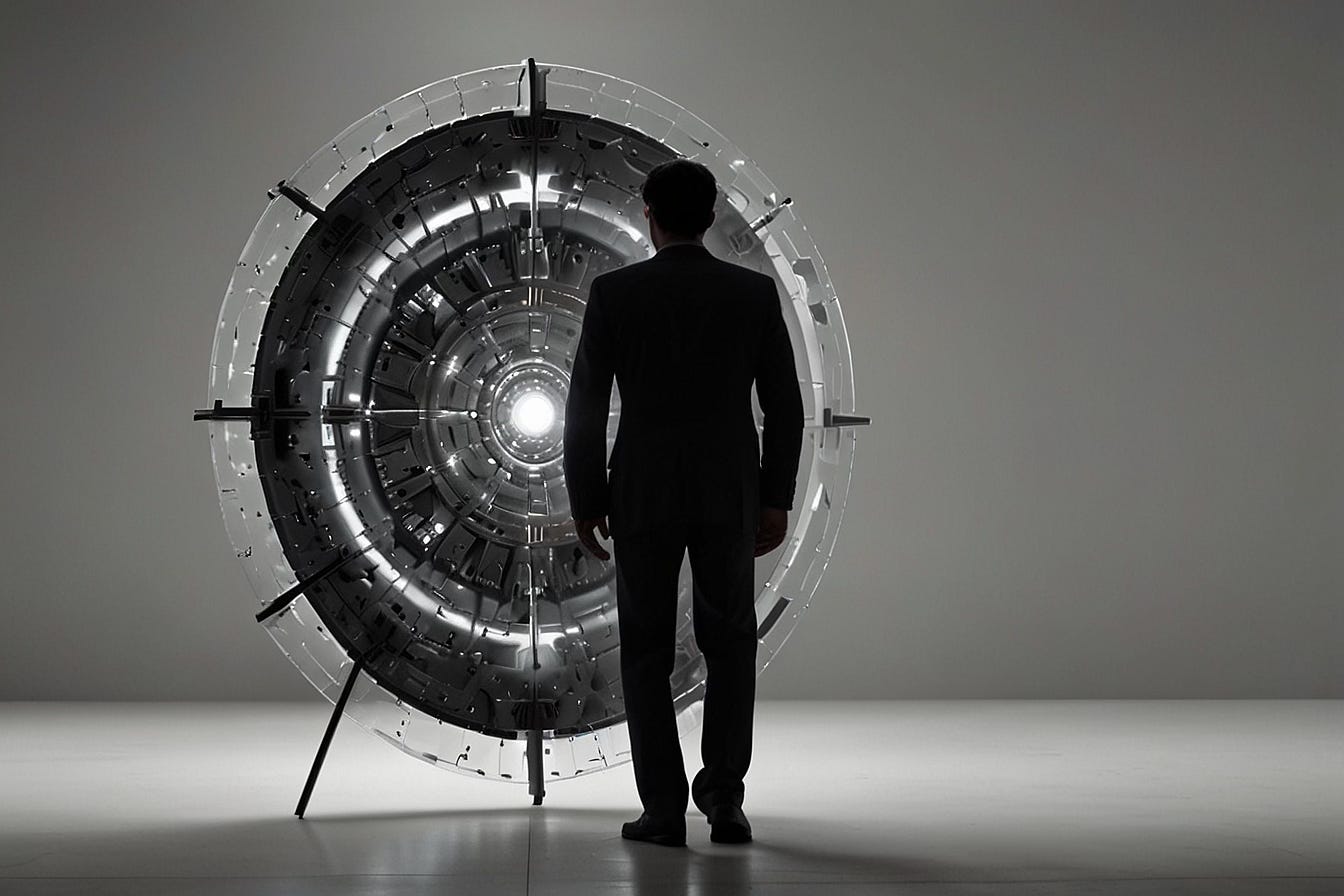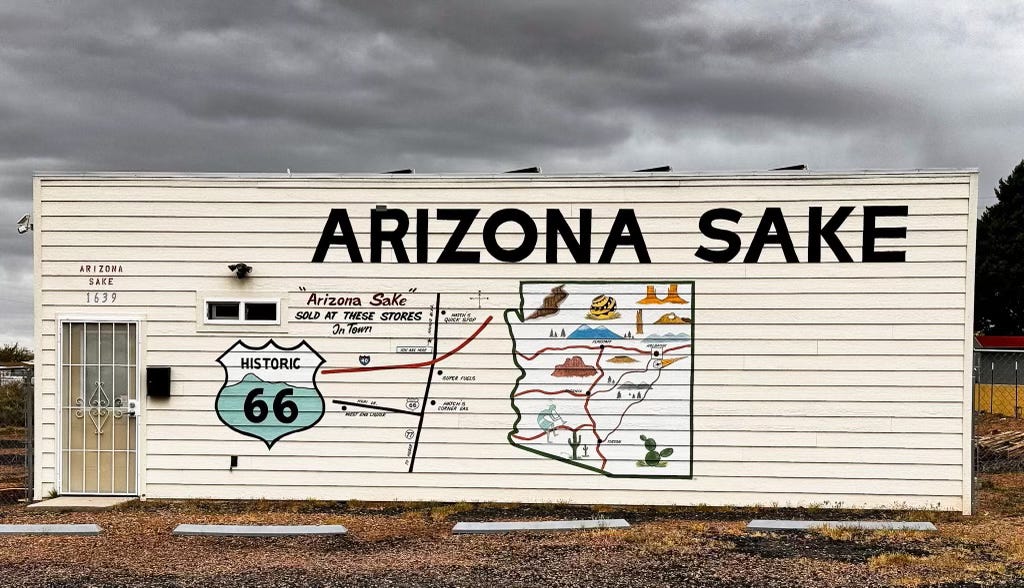Tech that drives true change
Distribution is the future of AI—even if distributors don't yet see the future.
Aqil Naeem is a Stanford student on a sabbatical working to create AI tools that may shape the future of distribution. The Last Repair Shop, a film directed by Ben Proudfoot and Kris Bowers, winner of the Best Documentary Short Film at the 2024 Academy Awards, shares the human stories of skilled workers dedicated to their craft and purpose. The Rise of the Machines, a podcast episode hosted by Peter Robinson of the Hoover Institution, offers hope for bending AI to serve humanity in a conversation with John Etchemendy and Fei-Fei Li, co-directors of Stanford's Institute for Human-Centered Artificial Intelligence (HAI.) Together, these perspectives offer more Food for the Supply Chain Soul, inspiring what I write below.
Help us grow! Please share this edition with anyone who might find inspiration in its stories and ideas.
Flipping the script
When it comes to innovating with artificial intelligence (AI), distributors are mostly doubling down, looking to improve efficiency and productivity in ways that defend and shore up existing business models, not challenge them. Doubling down is fine as a wholly defensive strategy. But we should be clear: Defensive innovations create constraints that bind distributors as intermediaries, locking down potential profits, not unleashing them.
Staying on defense does not take full advantage of the unique experience distributors gain by offering solutions that span a wide range of products and brands—nor does it access the wisdom generated from standing side-by-side with customers in the communities where they live and work. By doubling down, distributors see opportunities through a narrow lens, favoring applications with immediate gain and forgoing creative impulses deadened by the tyranny of precedent.
I believe distributors can be more and do more, crafting a new vision for AI that is uniquely “of distribution” and deployed in the service “of customers.” But, before you read further, STOP! Watch The Last Repair Shop and listen to The Rise of the Machines here and here. Then, seeing the world through the eyes of others, join me in imagining distribution that is not redone but reborn by technology.
Stirred by the visions of Proudfoot, Bowers, Etchemendy, and Li, I suggest three paths for developing a human-centered, distributor-enabled vision for the future of AI:
See your customers. Today, distributors apply AI to better see and use the data in their inside systems. But what if AI could help them better see customers’ needs, aspirations, purpose, and values, perhaps by connecting their systems or by listening to spoken words? Or, some other way?
Let customers see you. Trust flows from transparency. What if AI could help customers see into your business from their viewpoint, a vision that goes beyond seeing solutions, prices, and delivery dates? I'm talking about a human line of sight that sees your business the way it is, powered by people with passions who succeed and fail every day. Could such an AI help customers help you?
Together, see the future. What if AI could paint holistic future states that include your services (and profits) and the customer’s initiatives (and profits), perhaps in a collaborative multiplayer game environment? Could such an AI help your people and customers slay day-to-day problems as gamified villains while aiming to build a previously unimagined world of shared purpose and mutual benefit in the long term?
Revolutionizing sales
A decade ago, a distributor executive told me the story of a salesperson who used the distributor’s website as a collaboration tool by literally walking around a buyer’s desk to jointly look at products, solutions, and prices on the salesperson’s tablet. The simple act of standing beside a customer transformed the seller into a partner.
Today, this account is relevant again, pointing toward a distributor-led vision for artificial intelligence, an approach more potent than deploying AI as a co-pilot to help a salesperson sell better. What if AI could be used like the tablet in the story above, becoming an independent entity, simultaneously offering information and analysis to a customer and salesperson, working together, not as buyer and seller, but as collaborators?
Pushing on this thread and again inspired by Repair Shop and Rise, I see three fundamentally different and revolutionary roles for salespeople disrupted by AI:
Joiner. Every community is different, defined by a unique confluence of demographics, market conditions, and culture. Salespeople may become a go-between, building relationships by joining efforts to create economic development, solve social problems, promote environmentalism, and more.
Builder. Going further, salespeople may draw on resources represented by a distributor's business network and facilities and bring people together to solve community problems. In my community, I am working on the idea that distributors across multiple lines of trade might pool their experience and data to improve the quality of business, attract new companies, support electrification, and manage traffic.
Apprentice. Distributors are stepping up to help enable apprenticeships for current and future skilled workers, aligning with a growing trend discussed in this Wall Street Journal article: How Gen Z Is Becoming the Toolbelt Generation. Turning this idea on its head, salespeople might become apprentices themselves, filling roles in their community to work with economic development teams, social impact organizations, customers, suppliers, and more.
A way forward
In closing, I would like to offer that to see their way forward as innovators, distributors must first see the innovators they serve. Or should serve. I am touring the desert southwest as I write, having fun, and looking for inspiration. Driving through the tiny town of Holbrook, Arizona, I spied this building:
Could it be? Sake made in Arizona? Googling, I found the story of Atsuo Sakurai, a certified Sake Master who is honored with top awards in Japan and the United States. Sakurai's story is one of passion and entrepreneurship, aided by hard work, uncontrollable circumstances, and the strong support of a local community. Sakurai’s story is worth a read by every distributor, in every line of trade—for inspiration and as a call to action to find your most entrepreneurial customers pursuing their passion against all odds. If you see them, you can help them. By aiding their innovations, you will help yourself become more innovative. Your journey may point to inventing the future of AI, building a culture of innovation in your company, or just leaning in to help someone in need of your attention.
Please share your stories of entrepreneurs and customer innovations with me, and if you like, make an introduction. The vision of Chef Fernando Trancoso, the founder of Inefable in Colorado Springs, inspired my previous edition. I hope to spend more time with Fernando, Atsuo, Aqil, and others like them to help guide my ideas and writing.
As always, please leave your comments below or reach out at mark.dancer@n4bi.com.



